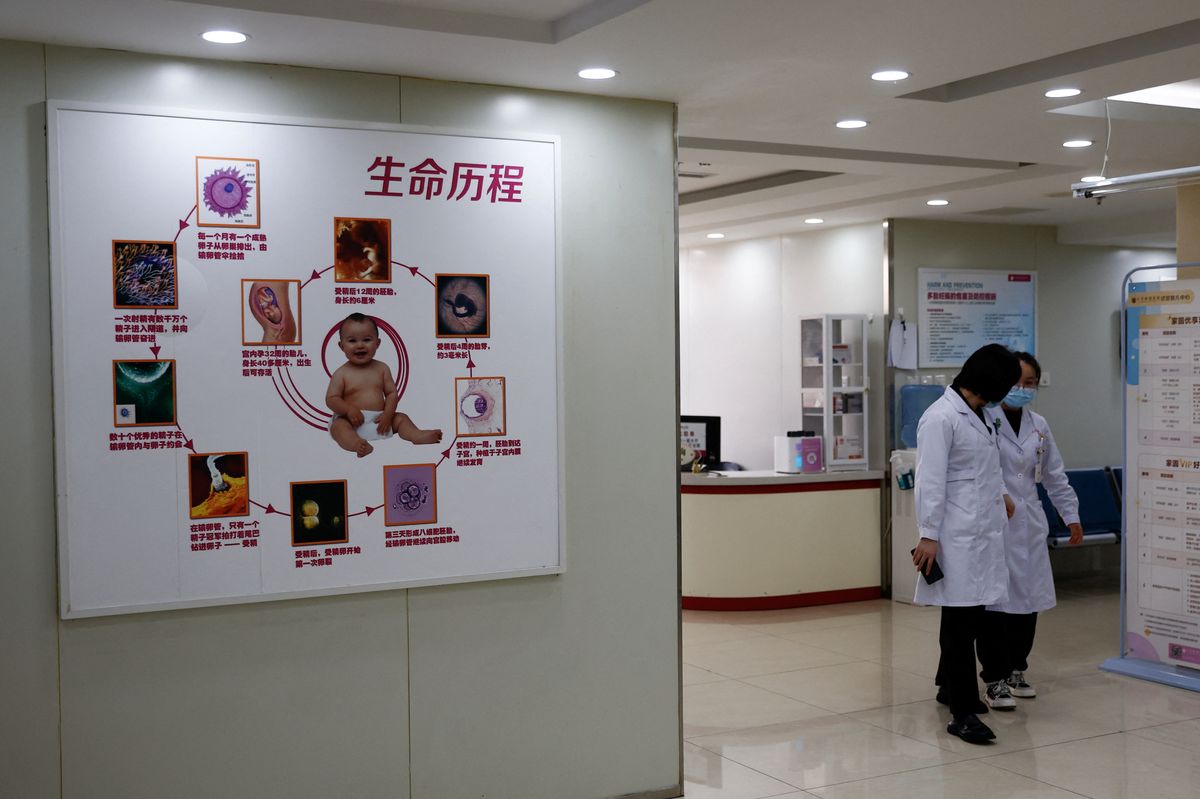To deal with its population crisis, China's ushering in a “new era” of marriage and childbearing culture
China's Family Planning Association is reportedly launching pilot projects in over 20 cities to boost the birth rate.

A few minutes every morning is all you need.
Stay up to date on the world's Headlines and Human Stories. It's fun, it's factual, it's fluff-free.
The backstory: China’s pretty huge, and up until this year, it was the most populous country in the world. So, for a while, China had a rule called the "one-child policy." This was in effect from 1980 to 2016. It meant that families were only allowed to have one child, and the idea was to keep population growth in check. But now, the government has made a complete U-turn and is actually encouraging people to have more babies. So, why the sudden change of heart?
Well, China’s now facing some population issues. Last year, it hit its lowest birth rate ever at just 6.77 births per 1,000 people. And for the first time in over 60 years, the country’s population actually shrank in 2022. On top of that, about a fifth of its population is made up of older people. Not that we don’t love our elders; it’s just that this shrinks the workforce as older people retire, putting more strain on the economy.
More recently: So, last year, China’s President, Xi Jinping, said he would try and help families out by making things a bit easier for them economically. He even promised to create a policy system to encourage more people to have babies and make raising children more affordable.
And in March, China’s top political advisors in the Chinese People's Political Consultative Conference (CPPCC) came up with some ideas to help with that.
The CPPCC suggested offering free college education and giving unmarried women the same rights as married women, including lifting the ban on unmarried women freezing their eggs and doing IVF treatments. All of this is aimed at boosting China's fertility rate.
The development: Now, China's Family Planning Association is reportedly launching pilot projects in over 20 cities to encourage women to marry and have kids at “appropriate ages” and promote shared co-parenting responsibilities between couples. It aims to create a "new-era" marriage and childbearing culture, getting rid of all those old customs (like traditional “bride prices,” where the groom-to-be pays a sum to the bride’s family) that have been holding people back. Some provinces are even offering incentives like tax breaks, housing subsidies and free education for families that have a third child. China’s Global Times reported that the association already launched similar projects last year in 20 cities, including Beijing.
Key comments:
"The society needs to guide young people more on the concept of marriage and childbirth," said demographer He Yafu to the Global Times.
"These pilot regions are expected to take innovative and proactive measures to help foster childbearing-friendly atmospheres and contribute to advancing Chinese modernization with the support from the high-quality development of the population," said Yao Ying, a vice president of the China Family Planning Association.
“[We will] establish a policy system to boost birth rates and bring down the costs of pregnancy and childbirth, child-rearing and schooling,” said Chinese President Xi Jinping last October. “We will pursue a proactive national strategy in response to population aging, develop elderly care programs and services and provide better services for elderly people who live alone.”
“China’s limited ability to react to this demographic shift will likely lead to slower growth outcomes in the next twenty to thirty years and impact its ability to compete on the world stage with the United States,” said the US-based Center for Strategic and International Studies in an article on its website last August.




Comments ()